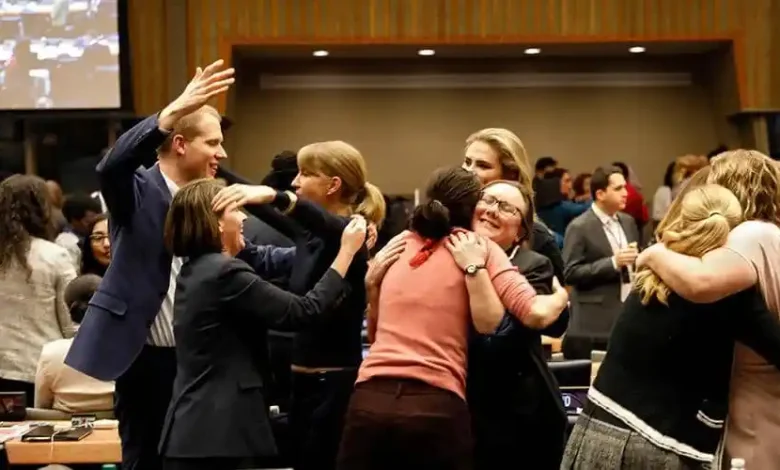
UN: Women’s presence in diplomacy has been significantly reduced
The United Nations has announced in the latest case that women’s leadership continues to be significantly reduced in diplomacy and political leadership [globally].
The organization issued a statement today (Tuesday, jun 24), coinciding with the International Women’s Day in Diplomacy, calling for the removal of structural barriers to women’s leadership in diplomacy.
In the statement, the UN emphasized that recent trends indicate a worrying regression in the presence of women in diplomacy.
It is worth noting that women and girls in Afghanistan are deprived of the right to education, work and education due to severe restrictions imposed by the Taliban. There are no women in the group’s cabinet and the Ministry of Women’s Affairs has also been dissolved.
The Human Rights Council and UN Women have also said that “systemic barriers such as discrimination, gender stereotypes and political violence deprive women of high-level decision-making.”
Meanwhile, UN Deputy Secretary-General Amina Mohammed said everyone must work to ensure that women are at the negotiating table and their voices are heard.
The UN said that key ministries remain dominated by men, and the number of gender-balanced cabinets and ministries focused on equality is declining [globally].
The organisation stressed that this marginalisation is exacerbated by rising violence against women in politics, hindering participation and eroding progress.
“In 2025, the global diplomacy landscape is changing and women are at the forefront of this change, and women diplomats are uniquely positioned to bridge the gap between national legislative priorities and global diplomatic initiatives,” the statement said.
The UN added that women’s leadership in supporting women’s rights, peace and security plays a significant role in shaping foreign policies that reflect democratic values. At its 76th session, the UN General Assembly designated June 24 as the International Day of Women in Diplomacy and invited all Member States, UN agencies, non-governmental groups, academic institutions and associations of women diplomats to celebrate the day through education and public awareness-raising.